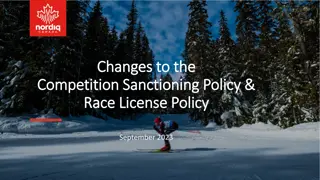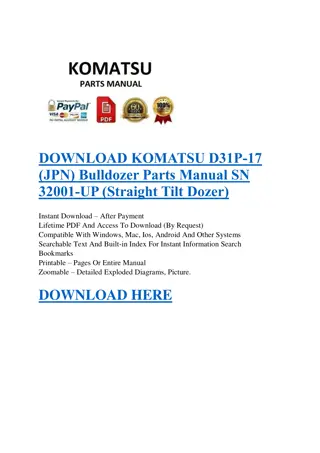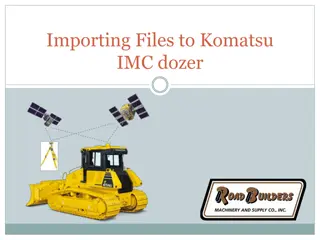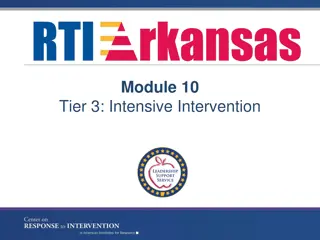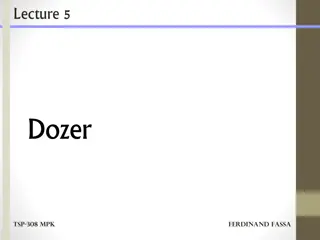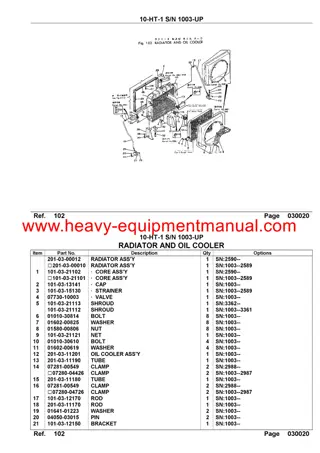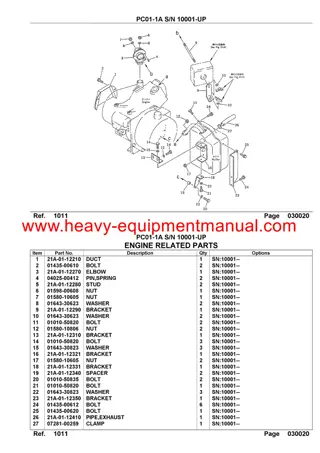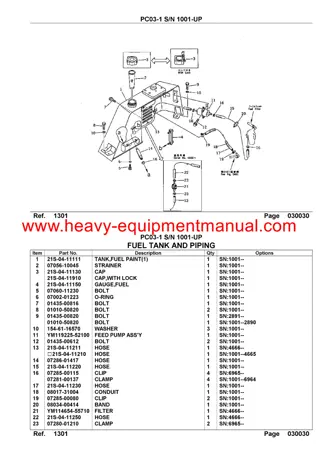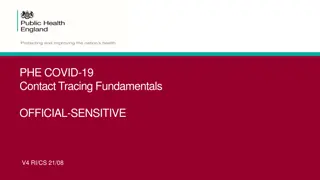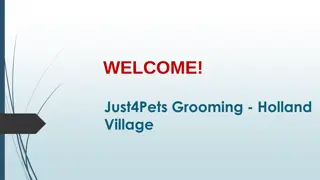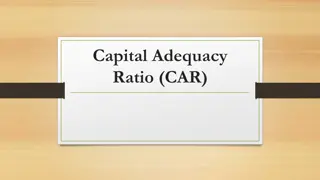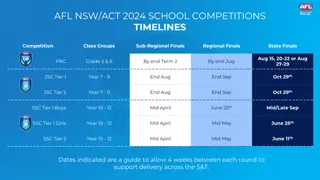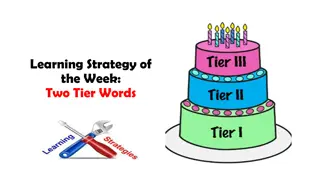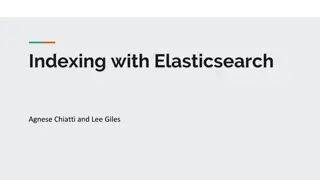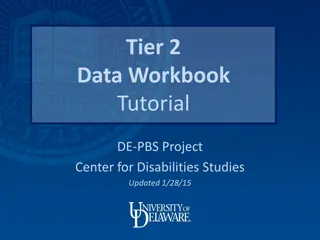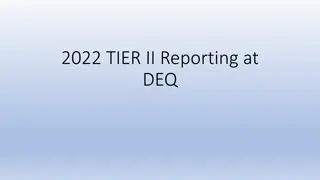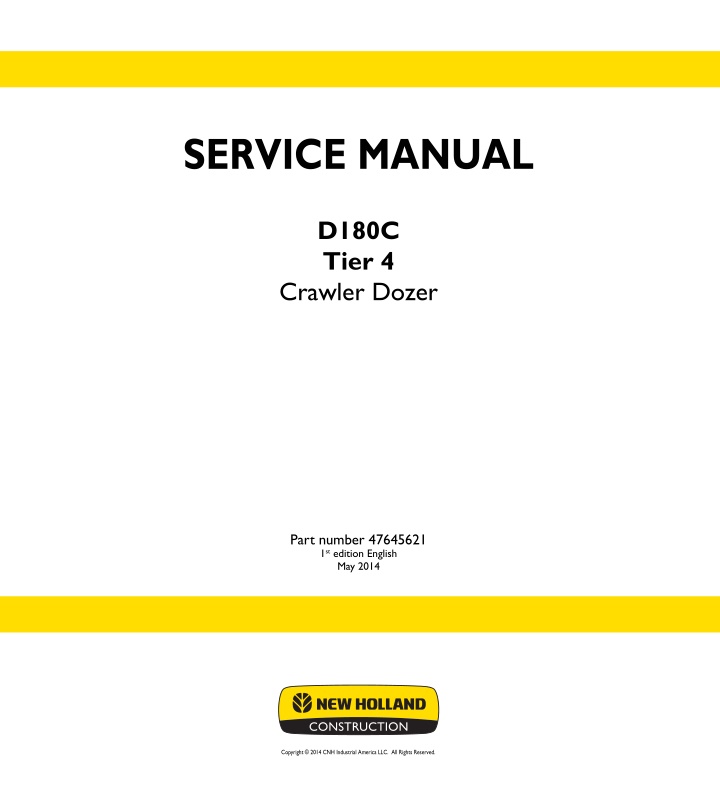
New Holland D180C Tier 4 Crawler Dozer Service Repair Manual Instant Download
New Holland D180C Tier 4 Crawler Dozer Service Repair Manual Instant Download
Download Presentation

Please find below an Image/Link to download the presentation.
The content on the website is provided AS IS for your information and personal use only. It may not be sold, licensed, or shared on other websites without obtaining consent from the author. If you encounter any issues during the download, it is possible that the publisher has removed the file from their server.
You are allowed to download the files provided on this website for personal or commercial use, subject to the condition that they are used lawfully. All files are the property of their respective owners.
The content on the website is provided AS IS for your information and personal use only. It may not be sold, licensed, or shared on other websites without obtaining consent from the author.
E N D
Presentation Transcript
SERVICE MANUAL SERVICE MANUAL D180C Tier 4 Crawler Dozer D180C Tier 4 Crawler Dozer Part number 47645621 1st edition English May 2014 Part number 47645621 Copyright 2014 CNH Industrial America LLC. All Rights Reserved.
Contents INTRODUCTION Engine....................................................................................... 10 [10.001] Engine and crankcase ............................................................. 10.1 [10.216] Fuel tanks .......................................................................... 10.2 [10.202] Air cleaners and lines .............................................................. 10.3 [10.250] Turbocharger and lines............................................................. 10.4 [10.500] Selective Catalytic Reduction (SCR) exhaust treatment........................... 10.5 [10.400] Engine cooling system ............................................................. 10.6 [10.414] Fan and drive ...................................................................... 10.7 [10.310] Aftercooler.......................................................................... 10.8 [10.304] Engine lubrication system.......................................................... 10.9 Hydrostatic drive......................................................................... 29 [29.218] Pump and motor components...................................................... 29.1 Brakes and controls .................................................................... 33 [33.110] Parking brake or parking lock ...................................................... 33.1 [33.202] Hydraulic service brakes ........................................................... 33.2 Hydraulic systems....................................................................... 35 [35.300] Reservoir, cooler, and filters........................................................ 35.1 [35.104] Fixed displacement pump.......................................................... 35.2 [35.106] Variable displacement pump ....................................................... 35.3 [35.105] Charge pump....................................................................... 35.4 [35.359] Main control valve.................................................................. 35.5 [35.741] Dozer blade cylinders .............................................................. 35.6 [35.525] Auxiliary hydraulic valves and lines ................................................ 35.7 [35.752] Hydraulic fan drive cooling system................................................. 35.8 [35.000] Hydraulic systems.................................................................. 35.9 47645621 31/05/2014
Frames and ballasting................................................................. 39 [39.100] Frame .............................................................................. 39.1 Tracks and track suspension........................................................ 48 [48.134] Track tension units ................................................................. 48.1 [48.140] Dropbox and final drive ............................................................ 48.2 Cab climate control..................................................................... 50 [50.100] Heating............................................................................. 50.1 [50.104] Ventilation .......................................................................... 50.2 Electrical systems....................................................................... 55 [55.000] Electrical system ................................................................... 55.1 [55.011] Fuel tank system ................................................................... 55.2 [55.014] Engine intake and exhaust system................................................. 55.3 [55.015] Engine control system.............................................................. 55.4 [55.030] Service brake electrical system .................................................... 55.5 [55.050] Heating, Ventilation, and Air-Conditioning (HVAC) control system................. 55.6 [55.100] Harnesses and connectors......................................................... 55.7 [55.201] Engine starting system............................................................. 55.8 [55.202] Cold start aid ....................................................................... 55.9 [55.301] Alternator......................................................................... 55.10 [55.302] Battery............................................................................ 55.11 [55.512] Cab controls...................................................................... 55.12 [55.518] Wiper and washer system........................................................ 55.13 [55.988] Selective Catalytic Reduction (SCR) electrical system .......................... 55.14 [55.DTC] FAULT CODES.................................................................. 55.15 Tools......................................................................................... 89 [89.128] Ripper assembly ................................................................... 89.1 Platform, cab, bodywork, and decals............................................. 90 [90.150] Cab................................................................................. 90.1 47645621 31/05/2014
https://www.ebooklibonline.com Hello dear friend! Thank you very much for reading. Enter the link into your browser. The full manual is available for immediate download. https://www.ebooklibonline.com
[90.114] Operator protections ............................................................... 90.2 [90.100] Engine hood and panels ........................................................... 90.3 47645621 31/05/2014
INTRODUCTION 47645621 31/05/2014 1
INTRODUCTION Safety rules Personal safety This is the safety alert symbol. It is used to alert you to potential personal injury hazards. Obey all safety messages that follow this symbol to avoid possible death or injury. Throughout this manual you will find the signal words DANGER, WARNING, and CAUTION followed by special in- structions. These precautions are intended for the personal safety of you and those working with you. Read and understand all the safety messages in this manual before you operate or service the machine. DANGER indicates a hazardous situation that, if not avoided, will result in death or serious injury. WARNING indicates a hazardous situation that, if not avoided, could result in death or serious injury. CAUTION indicates a hazardous situation that, if not avoided, could result in minor or moderate injury. FAILURE TO FOLLOW DANGER, WARNING, AND CAUTION MESSAGES COULD RESULT IN DEATH OR SERIOUS INJURY. Machine safety NOTICE: Notice indicates a situation that, if not avoided, could result in machine or property damage. Throughout this manual you will find the signal word Notice followed by special instructions to prevent machine or property damage. The word Notice is used to address practices not related to personal safety. Information NOTE: Note indicates additional information that clarifies steps, procedures, or other information in this manual. Throughout this manual you will find the word Note followed by additional information about a step, procedure, or other information in the manual. The word Note is not intended to address personal safety or property damage. 47645621 31/05/2014 3
INTRODUCTION Safety rules - Ecology and the environment Soil, air, and water are vital factors of agriculture and life in general. When legislation does not yet rule the treatment of some of the substances required by advanced technology, sound judgment should govern the use and disposal of products of a chemical and petrochemical nature. NOTE: The following are recommendations that may be of assistance: Become acquainted with and ensure that you understand the relative legislation applicable to your country. Where no legislation exists, obtain information from suppliers of oils, filters, batteries, fuels, antifreeze, cleaning agents, etc., with regard to their effect on man and nature and how to safely store, use, and dispose of these substances. Agricultural consultants will, in many cases, be able to help you as well. Helpful hints Avoid filling tanks using cans or inappropriate pressurized fuel delivery systems that may cause considerable spillage. In general, avoid skin contact with all fuels, oils, acids, solvents, etc. Most of them contain substances that may be harmful to your health. Modern oils contain additives. Do not burn contaminated fuels and or waste oils in ordinary heating systems. Avoid spillage when draining off used engine coolant mixtures, engine, gearbox and hydraulic oils, brake fluids, etc. Do not mix drained brake fluids or fuels with lubricants. Store them safely until they can be disposed of in a proper way to comply with local legislation and available resources. Modern coolant mixtures, i.e. antifreeze and other additives, should be replaced every two years. They should not be allowed to get into the soil, but should be collected and disposed of properly. Do not open the air-conditioning system yourself. It contains gases that should not be released into the atmosphere. Your NEW HOLLAND CONSTRUCTION dealer or air conditioning specialist has a special extractor for this purpose and will have to recharge the system properly. Repair any leaks or defects in the engine cooling or hydraulic system immediately. Do not increase the pressure in a pressurized circuit as this may lead to a component failure. Protect hoses during welding as penetrating weld splatter may burn a hole or weaken them, allowing the loss of oils, coolant, etc. 47645621 31/05/2014 4
INTRODUCTION Safety rules General safety rules Use caution when operating the machine on slopes. Raised equipment, full tanks and other loads will change the center of gravity of the machine. The machine can tip or roll over when near ditches and embankments or uneven surfaces. Never permit anyone other than the operator to ride on the machine. Never operate the machine under the influence of alcohol, drugs, or while otherwise impaired. When digging or using ground engaging attachments be aware of buried cables. Contact local utilities to determine the locations of services. Pay attention to overhead power lines and hanging obstacles. High voltage lines may require significant clearance for safety. Hydraulic oil or diesel fuel leaking under pressure can penetrate the skin, causing serious injury or infection. DO NOT use your hand to check for leaks. Use a piece of cardboard or paper. Stop engine, remove key and relieve the pressure before connecting or disconnecting fluid lines. Make sure all components are in good condition and tighten all connections before starting the engine or pressur- izing the system. If hydraulic fluid or diesel fuel penetrates the skin, seek medical attention immediately. Continuous long term contact with hydraulic fluid may cause skin cancer. Avoid long term contact and wash the skin promptly with soap and water. Keep clear of moving parts. Loose clothing, jewelry, watches, long hair, and other loose or hanging items can become entangled in moving parts. Wear protective equipment when appropriate. DO NOT attempt to remove material from any part of the machine while it is being operated or components are in motion. Make sure all guards and shields are in good condition and properly installed before operating the machine. Never operate the machine with shields removed. Always close access doors or panels before operating the machine. Dirty or slippery steps, ladders, walkways, and platforms can cause falls. Make sure these surfaces remain clean and clear of debris. A person or pet within the operating area of a machine can be struck or crushed by the machine or its equipment. DO NOT allow anyone to enter the work area. Raised equipment and/or loads can fall unexpectedly and crush persons underneath. Never allow anyone to enter the area underneath raised equipment during operation. Never operate engine in enclosed spaces as harmful exhaust gases may build up. Before starting the machine, be sure that all controls are in neutral or park lock position. Start the engine only from the operator s seat. If the safety start switch is bypassed, the engine can start with the transmission in gear. Do not connect or short across terminals on the starter solenoid. Attach jumper cables as described in the manual. Starting in gear may cause death or serious injury. Always keep windows, mirrors, all lighting, and Slow Moving Vehicle (SMV) emblem clean to provide the best possible visibility while operating the machine. Operate controls only when seated in the operator s seat, except for those controls expressly intended for use from other locations. 47645621 31/05/2014 6
INTRODUCTION Before leaving the machine: 1. Park machine on a firm level surface. 2. Put all controls in neutral or park lock position. 3. Engage park brake. Use wheel chocks if required. 4. Lower all hydraulic equipment Implements, header, etc. 5. Turn off engine and remove key. When, due to exceptional circumstances, you would decide to keep the engine running after leaving the operator s station, then the following precautions must be followed: 1. Bring the engine to low idle speed. 2. Disengage all drive systems. WARNING Some components may continue to run down after disengaging drive systems. Make sure all drive systems are fully disengaged. Failure to comply could result in death or serious injury. 3. W0113A Shift the transmission into neutral. 4. Apply the parking brake. General maintenance safety Keep area used for servicing the machine clean and dry. Clean up spilled fluids. Service machine on a firm level surface. Install guards and shields after servicing the machine. Close all access doors and install all panels after servicing the machine. Do not attempt to clean, lubricate, clear obstructions or make adjustments to the machine while it is in motion or while the engine is running. Always make sure working area is clear of tools, parts, other persons and pets before you start operating the machine. Unsupported hydraulic cylinders can lose pressure and drop the equipment causing a crushing hazard. Do not leave equipment in a raised position while parked or during service, unless securely supported. Jack or lift the machine only at jack or lift points indicated in this manual. Incorrect towing procedures can cause accidents. When towing a disabled machine follow the procedure in this man- ual. Use only rigid tow bars. Stop the engine, remove key and relieve pressure before disconnecting or connecting fluid lines. Stop the engine and remove key before disconnecting or connecting electrical connections. Scalding can result from incorrect removal of coolant caps. Cooling system operates under pressure. Hot coolant can spray out if a cap is removed while the system is hot. Allow system to cool before removing cap. When removing a cap turn it slowly to allow pressure to escape before completely removing the cap. Replace damaged or worn tubes, hoses, electrical wiring, etc. Engine, transmission, exhaust components, and hydraulic lines may become hot during operation. Take care when servicing such components. Allow surfaces to cool before handling or disconnecting hot components. Wear protective equipment when appropriate. When welding, follow the instructions in the manual. Always disconnect the battery before welding on the machine. Always wash your hands after handling battery components. 47645621 31/05/2014 7
SERVICE MANUAL Engine D180C 47645621 31/05/2014 10
Engine - Engine and crankcase Engine - Remove Prior operation: Frame - Remove (39.100) NOTICE: The engine weighs approximately 631 kg (1391 lb). Use appropriate lifting equipment to prevent personal injury or property damage. NOTICE: The engine must be balanced as shown, or personal injury or property damage will occur. 1. Attach an appropriate lifting device to the engine lift points. 2. Support the front of the hydraulic pump stack with an appropriate lifting device or stand. 3. Remove the bolts and washers (1) from the right front engine-to-frame cradle mount and the left front engine- to-frame cradle mount. 1 RAIL14DOZ0447AA 4. Remove the mounting bolts and washers (1) from the left side engine-to-frame cradle mounting bracket (2). Remove the mounting bracket. 2 RAIL14DOZ0209AA 5. Remove the mounting bolts and washers (1) from the right side engine-to-frame cradle mounting bracket (2). Remove the bracket. 3 RAIL14DOZ0202AA 47645621 31/05/2014 10.1 [10.001] / 3
Engine - Engine and crankcase 6. Remove the mounting bolts and washers (1) from the engine-to-pump stack adapter plate (2). 7. Slowly move the engine forward to separate it from the hydrostatic drive pump stack, and remove the engine from the frame cradle. 4 RAIL14DOZ0203AA 8. Remove the tandem pump flexible coupling assembly from the flywheel. Next operation: Engine - Install (10.001) 47645621 31/05/2014 10.1 [10.001] / 4
Engine - Engine and crankcase Engine - Install Prior operation: Engine - Remove (10.001) 1. Attach the tandem pump flexible coupling assembly to the flywheel. Torque the bolts to 41 - 50 N m (30 - 37 lb ft) 2. Slowly lower the engine into the frame cradle and con- nect the engine to the hydrostatic drive pump stack. 3. Install the mounting bolts and washers (1) into the en- gine-to-pump stack adapter plate (2). Torque the bolts to 46 - 62 N m (34 - 46 lb ft). 1 RAIL14DOZ0203AA 4. Use a level and verify that the engine mounting frame cradle is sitting on a level surface. NOTE: Before applying the torque to the mid engine-to-frame cradle mount bracket bolts and the front engine-to- mount frame cradle bolts to their final specification, make sure that the frame cradle is level. 5. Install the right side engine-to-frame cradle mounting bracket. Apply LOCTITE 242 to the engine-to-frame cradle mounting bracket bolts. Torque the three bolts (1) 91 - 123 N m (67 - 91 lb ft) to the adapter plate, and the three bolts (2) 225 - 305 N m (166 - 225 lb ft) to the right side engine-to-frame cradle mounting bracket (3). 2 RAIL14DOZ0202AA 47645621 31/05/2014 10.1 [10.001] / 5
Engine - Engine and crankcase 6. Install the left side engine-to-frame cradle mounting bracket. Apply LOCTITE 242 to the engine-to-frame cradle mounting bracket bolts. Torque the three bolts (1) 91 - 123 N m (67 - 91 lb ft) to the adapter plate, and the three bolts (2) 225 - 305 N m (166 - 225 lb ft) to the left side engine-to-frame cradle mounting bracket (3). 3 RAIL14DOZ0209AA 7. Install the bolts and washers (1) into the right front en- gine-to-frame cradle mount and the left front engine-to- frame cradle mount. Torque the bolts to 107 - 123 N m (79 - 91 lb ft). 4 RAIL14DOZ0447AA 8. Remove the support from the hydraulic pump stack. Remove the lifting device from the engine. Next operation: Frame - Install (39.100) 47645621 31/05/2014 10.1 [10.001] / 6
Engine - Fuel tanks Fuel tank - Remove 1. Removethecabfromthemachine. SeeCab-Remove (90.150). 2. Removefourboltsandwashers(1)andremovethefuel / Diesel Exhaust Fluid (DEF) drain hose access panel (2) from the left side of the machine. 1 RAIL14DOZ0141AA 3. Remove the fuel tank drain hose cap (1) from the fuel tank drain hose (2). 2 RAIL14DOZ0142AA 4. Open the fuel tank drain valve and drain the fuel into a suitable container for storage. Close the drain valve when complete. 3 RAIL14DOZ0144AA 47645621 31/05/2014 10.2 [10.216] / 3
Engine - Fuel tanks 5. Loosen the drain hose clamp (1) and remove the drain hose (2) from the drain valve (3). 4 RAIL14DOZ0144AA 6. Install the fuel tank drain hose cap (1) to the fuel tank drain hose (2). 5 RAIL14DOZ0142AA 7. Tag and disconnect the fuel supply (1) and the fuel re- turn (2) lines from the top of the fuel tank. Close all openings to prevent fuel loss or contamination. 6 RAIL14DOZ0143AA 8. Removethefuelsupply(1)andthefuelreturn(2)hoses from the four retaining clips (3) at the top rear of the fuel tank. 7 RAIL14DOZ0145AA 47645621 31/05/2014 10.2 [10.216] / 4
Suggest: If the above button click is invalid. Please download this document first, and then click the above link to download the complete manual. Thank you so much for reading
Engine - Fuel tanks 9. Remove the two fuel tank strap retaining bolts (1) and one locknut (2). Remove the fuel tank retaining straps (3) from the machine. 8 RAIL14DOZ0143AA 10. Loosen the DEF tank fill hose clamp (1). 9 RAIL14DOZ0146AA 11. Remove the two DEF filler neck bolts and washers (2) and remove the DEF filler neck (3) from the machine. Close all openings. NOTE: The DEF tank does not need to be removed from the machine, however, it must be moved forward to gain clearance for the fuel tank removal. 47645621 31/05/2014 10.2 [10.216] / 5
https://www.ebooklibonline.com Hello dear friend! Thank you very much for reading. Enter the link into your browser. The full manual is available for immediate download. https://www.ebooklibonline.com

